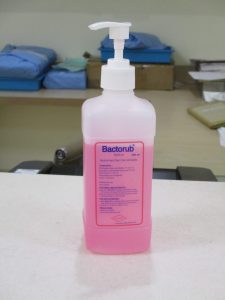Disinfection is the process of elimination of most pathogenic microorganisms except bacterial spores on inanimate objects. Achieved by physical or chemical methods to avoid infection to Patients
Disinfection characterized as the procedure where all the living microorganisms, including bacterial spores, executed. Disinfection accomplished by physical, substance and physiochemical implies. Synthetic concoctions utilized as disinfecting operators called chemosterilants.
Sterilization procedure of end of most pathogenic microorganisms (barring bacterial spores) on lifeless things. Cleansing can be accomplished by physical or substance techniques. Synthetic compounds utilized in purification are called disinfectants. Distinctive disinfectants diverse target ranges, not all disinfectants can slaughter all microorganisms.
Types of Disinfection
High-Level Disinfection
Medium Level Disinfection
Low-Level Disinfection
A few techniques for purification, for example, filtration don’t eliminate microscopic organisms, they separate them out.
Disinfection procedure of concoction or mechanical purging, pertinent in general wellbeing frameworks. Generally utilized by the nourishment business. It decreases microorganisms on eating utensils to protected, worthy dimensions for general wellbeing. Asepsis is the work of strategies, (for example, utilization of gloves, air channels, UV beams and so forth) to accomplish microorganism free condition.
Cleansing is an outright condition while purification isn’t. Purification is the procedure of expulsion of polluting pathogenic microorganisms from the articles by a procedure of cleansing or sanitization. It is the utilization of physical or compound intends to evacuate, inactivate, or demolish living life forms on a surface.
Other Types by Organism

Antisepsis is the utilization of synthetic compounds (cleaning agents) to make the skin or bodily fluid films without pathogenic microorganisms. Bacteriostasis the augmentation of the microbes hindered without slaughtering them.
Bactericidal a synthetic that can execute or inactivate microbes. Such synthetic compounds called differently relying upon the range of action, for example, bactericidal, virucidal, fungicidal, microbicidal, sporicidal, tuberculocidal or germicidal.
Anti-infection agents substances delivered by one microorganism that represses or slaughters another organism. Regularly the term utilized all the more for the most part to incorporate engineered and semi-manufactured antimicrobial specialists.